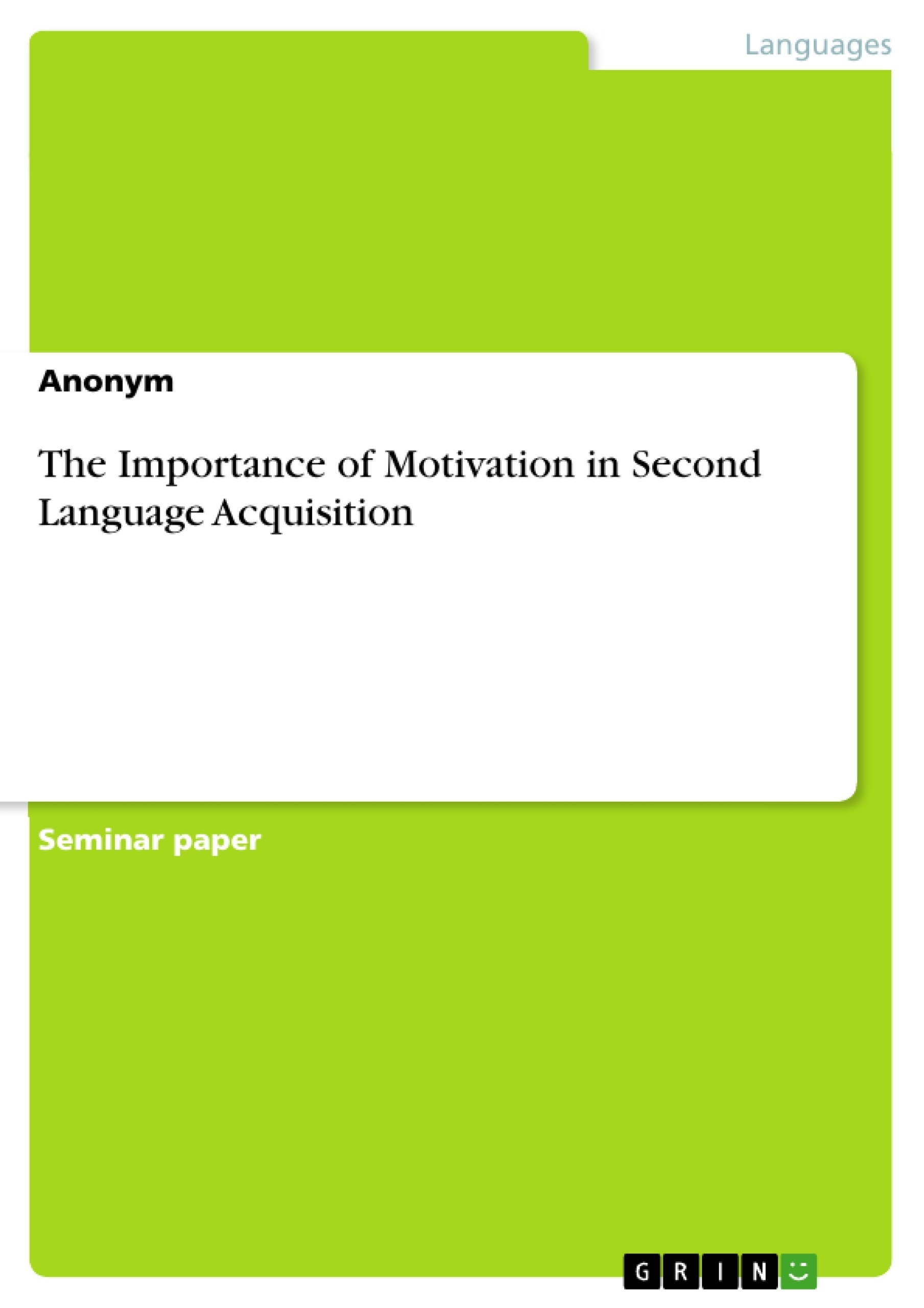This paper will look at one important factor in mastering the acquisition of a second language - motivation. It will be argued that the development of positive attitudes and motivation has a great impact on an individual’s success in second language learning.
Evidence for these claims will be based on different studies, including one by Moyer (1999) on highly motivated subjects learning German and another by Pfenninger and Singleton (2016) which compares data from motivation questionnaires and language experience essays completed by 200 Swiss learners of English at both the beginning and the end of secondary school.
Various researchers believe that age is the one factor which determines whether a subject is able to master a second language to a native-like level or not. However, in this paper it is argued that other factors such as motivational matters also play a vital role in the acquisition of a second language. If indeed this is the case, different concepts of motivation need to be taken into consideration.
Table of Contents
- Abstract
- Introduction
- Motivation
- Intrinsic vs. Extrinsic motivation
- Acquisition vs. Learning
- Motivation in language learning
- The Critical Period Hypothesis
- The role of motivation in second language acquisition
- Conclusion
Objectives and Key Themes
This paper investigates the significance of motivation in second language acquisition, arguing that positive attitudes and motivation significantly influence an individual's success in learning a second language. The study examines various studies, including those by Moyer (1999) and Pfenninger and Singleton (2016), to support this claim. The paper aims to challenge the notion that age is the sole determinant of success in second language learning and emphasize the crucial role of motivation.
- The impact of motivation on second language acquisition
- Intrinsic vs. Extrinsic motivation in language learning
- The role of age and motivation in language acquisition
- The importance of positive attitudes in second language learning
- The influence of motivation on the success of language learners
Chapter Summaries
- Introduction: This chapter introduces the debate surrounding factors influencing the success of second language learners, highlighting the focus on age as a significant variable. It presents the argument that other factors, particularly motivation, play a vital role in second language acquisition. The chapter then introduces the study by Moyer (1999) as evidence for the importance of motivation in language learning.
- Motivation: This section defines motivation as a dynamic and adaptable phenomenon, emphasizing the need to understand its different aspects. It then discusses the distinction between intrinsic and extrinsic motivation, exploring how these motivations influence behavior and learning.
Keywords
This paper focuses on the key concepts of motivation, second language acquisition, intrinsic and extrinsic motivation, age, and the Critical Period Hypothesis. It examines the relationship between these factors and their influence on the success of second language learners.
- Citar trabajo
- Anonym (Autor), 2020, The Importance of Motivation in Second Language Acquisition, Múnich, GRIN Verlag, https://www.grin.com/document/899796




